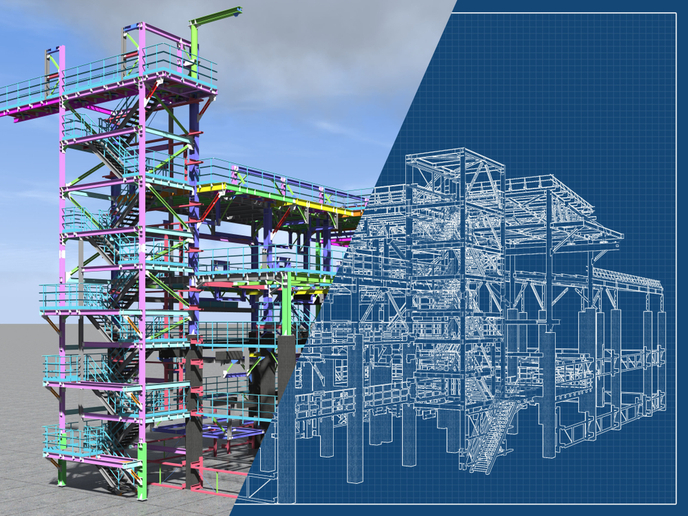Tailored BIM training for construction professionals
As digitalisation and climate change collide, unmissable opportunities arise for the construction industry. Building information modelling (BIM) is one of these. By allowing stakeholders to collaboratively generate and manage building-related data across their entire life cycle, it can help the EU meet its targets for future energy consumption and carbon emissions. This is where reality kicks in. The EU construction sector is highly fragmented, traditionally follows very linear workflows and historically comes out as adverse to risk. These all form barriers to digital transformation and the use of BIM, which regularly result in the likes of contractual issues (ownership of models), technical problems (interoperability) and higher costs. “If we take all these factors into account, we realise that upskilling the construction workforce to use BIM requires two elements: a combination of national and EU-wide strategies, and a thorough understanding of the need for new skills in a technological and contractual context that is changing very fast,” says Sylvain Kubicki, Senior Research and Technology Associate at the Luxembourg Institute of Science and Technology (LIST). BIMEET (BIM-based EU-wide Standardized Qualification Framework for achieving Energy Efficiency Training) brings together universities and technology institutes from five EU countries (Finland, France, Greece, Luxembourg and the United Kingdom) to provide the sector with a better understanding of market needs, along with innovative training schemes. “Our objective with BIMEET is to enhance the skills, qualifications and capabilities of construction stakeholders from high-level professionals to ‘blue collar’ workers. Eventually, this will increase the market penetration and adoption of BIM,” Kubicki explains.
BIM for energy efficiency
To get there, the consortium has developed a specific methodology to identify roles, skills and training needs in the field of BIM for energy efficiency. They used a repository of Twitter records to capture emerging skills and roles and developed a training portal that aggregates content from different BIM-related data sources. By using this tool, users can keep track of new trends and integrate them into future training content. The training portal effectively acts as a repository source for information on BIM and energy efficiency, as well as a database of available BIM training. The training portal also provides personalised training opportunity recommendations to construction professionals. Specific features are similarly being developed for training professionals, to help them fine-tune their content according to the characteristics of the market they focus on. E-learning is at the very core of the project. It is a means, according to Kubicki, to enable more efficient training sessions while reaching professionals who are less likely to attend physical training sessions – such as blue collar workers. “One of the most important achievements of the project is a matrix of learning outcomes(opens in new window) for BIM and energy efficiency, segmented into several disciplines and competency levels,” Kubicki explains.
Widespread application
BIMEET is set for completion in February 2020. By this date, new training and e-learning schemes will be completed and released to the market under the BIMEET label. The platform and its associated tools are already being considered for further exploitation, while discussions are ongoing with several training institutes and a standardisation body to use it as a centralised repository for BIM training.







